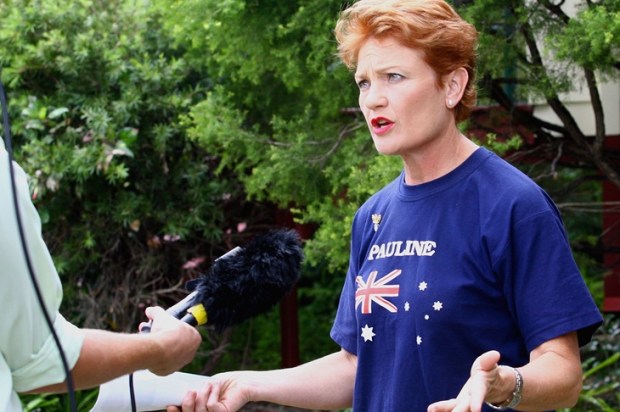Books
A gloom-laden tale: The Foot on the Crown, by Christopher Fowler reviewed
Returning to his roots in horror fiction, Fowler portrays Londinium as a dismal citadel, ruled by an enfeebled dynasty clinging to pointless rituals
A mild diversion for a wet afternoon: Three Days in June, by Anne Tyler, reviewed
Tyler is known for making the ordinary compelling, but this quiet tale of family relationships is subtle to the point of stupor
The sexual escapades of Edmund White sound like an improbably sordid Carry On film
The octogenarian writer seems unable to resist the burlesque, describing the most lurid encounters at an apparently droll remove
Modernisation has sent Russia spinning back to the Stone Age
Howard Amos portrays a once hopeful country now sweeping the past under the carpet as it alternates between pitying itself and pitting itself against the rest of the world
The gruesome fascination of female murderers
The 17th-century broadsheets revelled in describing the ‘lewd, abominable, corrupt’ nature of the ‘haggs’ and ‘she-devils’ indicted for homicide
The supreme conjuror Charles Dickens weaves his magic spell
Peter Conrad reminds us how the skilled stage performer, always yearning for enchantment, even introduced a few disguised magic tricks into his fiction
Reversing our economic decline is not easy, but it is simple
We are becoming poorer because we keep choosing to increase spending, taxes and debt, rather than incurring any short-term discomfort, argues Jon Moynihan
The pursuit of love letters: My Search for Warren Harding, by Robert Plunket, reviewed
Our magnificently monstrous anti-hero goes in quest of a cache of reputedly pornographic letters written by the former US president to his mistress
The magic of early radio days
Beaty Rubens takes us inside the British home 100 years ago as the glamorous new device becomes central to family life
The perils of poaching: Beartooth, by Callan Wink, reviewed
Two impoverished brothers from the Montana backcountry are tempted by the prospect of a daring heist in Yellowstone National Park
Putin’s éminence grise: The Wizard of the Kremlin, by Giuliano da Empoli, reviewed
Modelled on Putinism’s founding father, Vladislav Surkov, the protagonist of this internationally acclaimed novel pales by comparison with the real-life ideologue
Is the future of democracy in the balance?
Economic insecurity, intolerance and fear, combined with public expectations that the state will fix everything, are seriously endangering western democracy, warns Jonathan Sumption
The Coromandel coast under threat
The rich biodiversity of Chennai’s littoral is in imminent danger from toxic petrochemical industries, warns the ardent naturalist and activist Yuvan Aves
In search of Pico della Mirandola, the quintessential Renaissance Man
Though the scholar himself remains an enigma, his theories about language as a portal to the divine are explored in depth by Edward Wilson-Lee
Murder, incest and paedophilia in imperial Rome
Suetonius’s Lives of the Caesars appears in a vibrant new translation by Tom Holland, the current princeps of popular Roman history
The nerdy obsessive who became the world’s richest man
Seen by fellow pupils as an obnoxious loner, Bill Gates was a rebellious teenager, challenging his teachers and ‘at war’ with his parents
Inside the Unholy See: the infiltration of the Vatican by foreign powers
Yvonnick Denoël reveals how, since the mid-20th century, a scandalous number of priests have acted as communist moles
After half a billion years, are sharks heading for extinction?
Studies suggest that a third of coral reef sharks and more than half of pelagic sharks may be wiped out as a result of overfishing, habitat loss and pollution
A piece of Mars to toy with
Lunar souvenirs are slumping, but Martian rocks are soaring as today’s super-rich fight to get the best fragments from space on their desks
The strange potency of cheap perfume
Adelle Stripe has constructed a memoir around 18 key fragrances, but it is the Body Shop’s cheery Dewberry that evokes her worst teenage experience
The plain-speaking bloke from Warrington who painted only for himself
Born in 1932, Eric Tucker created his art not for exhibition or in pursuit of fame but simply because he felt compelled to do so
The pointlessness of the German Peasants’ War – except in Marxist ideology
The short-lived 16th-century revolt resolved absolutely nothing, but it loomed large in Engels’s thought and in the official DDR interpretation of history
The need to feel seen: Perfection, by Vincenzo Latronico, reviewed
A young couple in thrall to the beauty of their Instagrammed life soon grow dissatisfied with reality, and ennui follows them wherever they go
The shards of heaven beneath our feet
All precious stones are ‘earthly versions of the flickering lights in the night’s sky’, writes Philip Marsden, in a dazzling exploration of the minerals that make up our planet
Xi Jinping’s alarming blueprint for the future
Kevin Rudd leaves us in no doubt about Xi’s determination to influence foreign governments and increase China’s political and policy leverage over the world’s financial institutions































